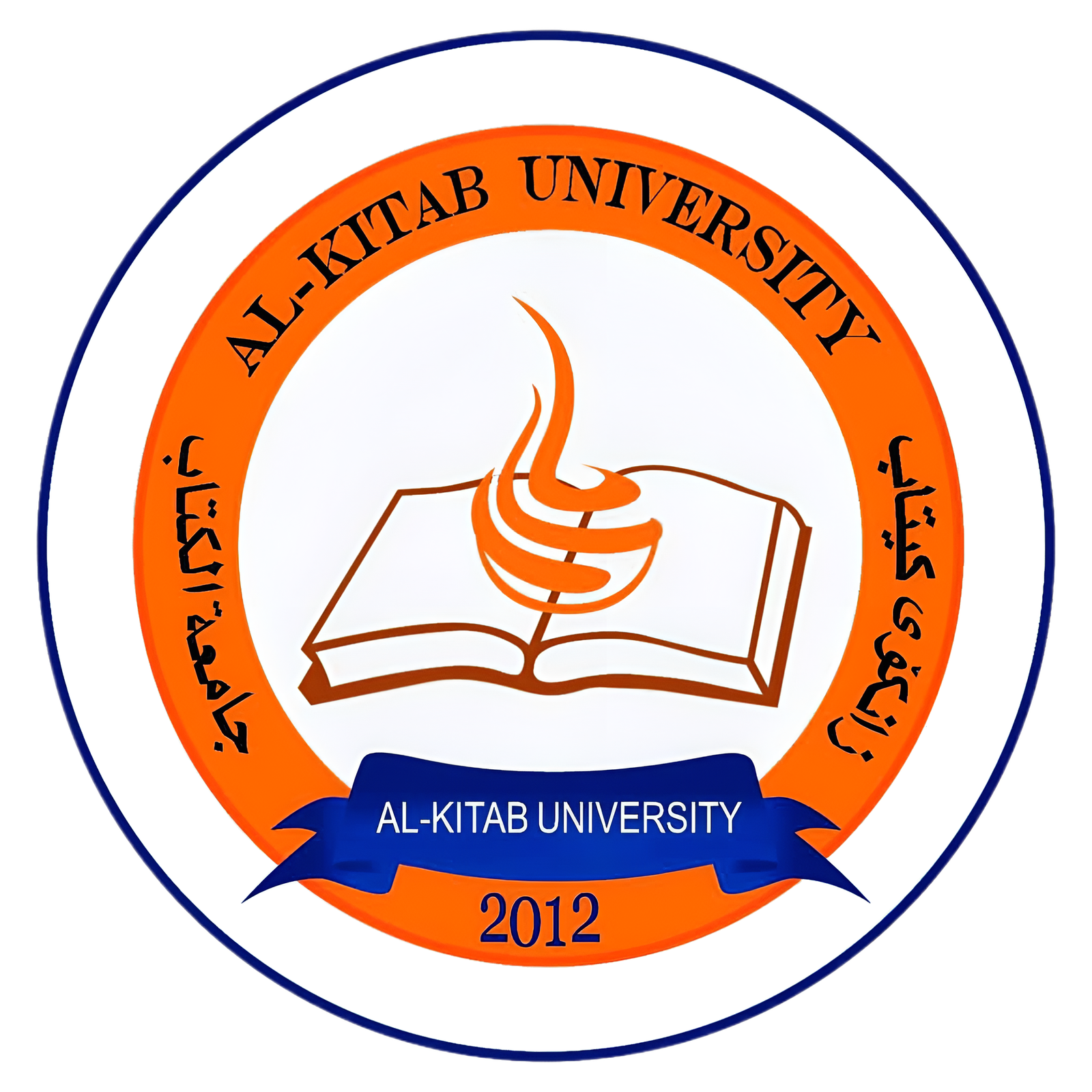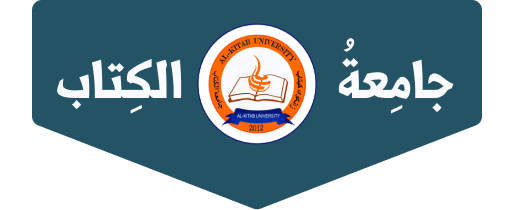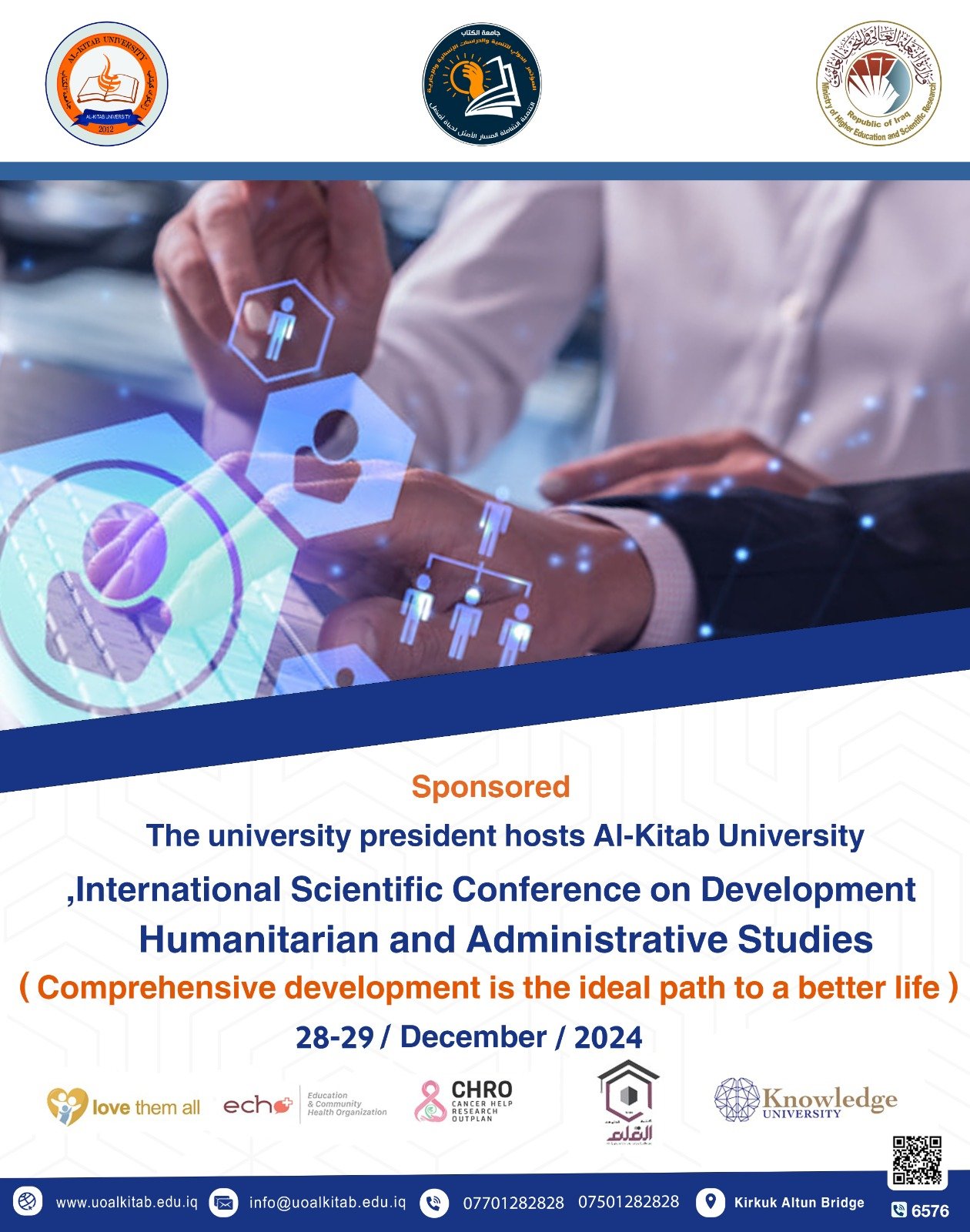The International Scientific Conference on Development and Humanitarian and Administrative Studies
The International Scientific Conference on Development and Humanitarian and Administrative Studies
“Comprehensive Development: The Optimal Path for a Better Life”
December 28-29, 2024
Al-Kitab University announces the First International Scientific Conference on Development and Humanitarian and Administrative Studies, officially approved by the Directorate of Research and Development of the Ministry of Higher Education and Scientific Research, Republic of Iraq, approval number T/2/7793, dated 8/8/2024. We invite researchers and experts to submit their research papers, which will be published in Scopus-indexed repositories and several peer-reviewed academic journals.
Al-Kitab University aims to make this significant scientific event a turning point in its current and future direction toward enhancing scientific advancement on both local and international levels, under the perspective of comprehensive development as the most secure global direction for a better future for humanity.
Conference Overview
Today, development, scientific research, and innovation goals represent an action plan for individuals and institutions, particularly in the most advanced and stable nations, aiming to enhance prosperity and stability. Issues such as poverty, unemployment, limited educational opportunities, and declining healthcare services have become paramount objectives for governments and global and local organizations. The risks posed by these issues are serious global challenges affecting every aspect of life.
In the field of development sciences, achieving stability and social peace has become directly linked to the scale and seriousness of comprehensive development programs. Advanced development plans have become essential tools in resolving complex issues facing societies. This conference aims to establish an international scientific partnership among experts and specialists, operating through clear mechanisms to address developmental program gaps, re-evaluate ineffective programs, and contribute to efforts to safeguard humanity from these outlined risks.
Moreover, it highlights the continued issues facing global development programs, including challenges in achieving satisfactory success rates despite sound planning, funding, and implementation. In an era marked by advanced artificial intelligence and digital technologies, insufficiently accurate employment of these resources contributes to ineffective development programs, requiring a more precise application of knowledge networks aligned with high standards of scientific research.
Conference Objectives
- Direct the diverse expertise of development and research specialists, particularly in humanitarian studies, toward the shared goal of providing innovative, cooperative solutions.
- Form research teams to design effective educational programs and scientific projects that address gaps in development and research.
- Enhance skill-sharing opportunities through training programs and workshops, rooted in logical planning and scientific research teamwork.
- Utilize research findings to manage innovation and activate creative incubators to implement research outcomes effectively.
- Forge strategic partnerships between public and private sectors to support sustainable development programs and promote scientific research.
- Foster a culture of communication among individuals and institutions in conference-related topics to achieve advanced scientific outcomes through organized and optimized use of creative talents.
- Establish and reinforce new research practices for expanding the benefits of scientific research, including collaborative research culture, diverse solutions and strategies, an advanced production environment, and non-traditional knowledge networks.
Main Conference Themes
- Humanities Research
- The role of research in development and support for scientific talent.
- Scenario planning and foresight in community development.
- Utilizing talent strategies in development and planning.
- Smart administration principles in research and comprehensive development.
- Traditional administration practices in research, benefits, and drawbacks.
- Fostering specialization and collective institutional work in research for development success.
- Institutional resilience and responsiveness to social and economic issues.
- The role of primary education programs in fostering research culture and teamwork.
- Human Resources and Development
- Modern HR management methods and their relevance to development.
- Research supporting infrastructure and community development.
- The role of educational institutions in cultural and intellectual community building.
- Eastern and Western language studies and their impact on sustainable development.
- Religious studies (Quran and Hadith) in achieving administrative development goals.
- The importance of sports and health sciences in establishing stable communities.
- The challenges and perspectives of social responsibility in administration and development.
- The impact of current and emerging technologies on sustainable development programs.
- Environmental and economic impacts of ineffective administrative policies and the role of smart management.
- Community Engagement and Sustainability
- Community responsibility, administrative challenges, and solutions.
- Sustainable development goals and practical requirements.
- Human rights and solidarity in sustainable development, reinforced by laws and treaties.
- The impact of good governance on sustainable development and healthy environments.
- International cooperation in legislation to enhance sustainable development for the well-being of individuals and communities.
Conference Languages: Arabic and English
Research Submission Requirements
- Research must be original and unpublished.
- Research should relate directly to a conference theme.
- Research must meet scientific research standards.
- Research should not exceed 25 pages (A4), formatted in Microsoft Word with the following: title 18pt bold (Simplified Arabic), main text 14pt, margins 12pt; for English: main text 12pt, margins 10pt.
- High-quality images, documents, and maps.
- Submit a 500-word summary outlining the research’s importance, theoretical framework, and key elements via email.
- Summary acceptance does not imply full research acceptance.
- All submitted research is subject to peer review.
- Researchers must adjust content as per the scientific committee’s recommendations.
- The scientific committee reserves the right to accept or reject research without explanation.
For Scopus papers, please review the guidelines at:
https://misd.tech/author-guidelines
Important Dates
- Conference Announcement: October 22, 2024
- Abstract Submission Deadline: November 25, 2024
- Research Submission Deadline: December 1, 2024
- Revised Research Submission Deadline: December 22, 2024
- Conference Date: December 28-29, 2024
Participation Fees:
There are no participation fees for the conference. Al-Kitab University will cover the publication costs of accepted joint research papers with Al-Kitab University researchers in Scopus-indexed journals, as follows:
- First author from Al-Kitab University: 100% coverage of publication costs.
- Second author from Al-Kitab University: 75% coverage of publication costs.
- Third author from Al-Kitab University: 50% coverage of publication costs.
Note: For papers published in the university-affiliated journals without an Al-Kitab University co-author, publication fees apply.
Al-Kitab University will also cover the publication costs of Arabic-language research papers presented at the conference in a special issue of its journals.
Approved Journals for Conference Paper Publication:
- Weed Biology and Management
- Journal of East European Management Studies
- Journal of Health Care Management
Conference Leadership:
- Conference Chair: Prof. Ayad Ismail Barznji
- Deputy Conference Chairs:
- Prof. Latif Barznji
- Prof. Jameel Musa Al-Zaidi
- Prof. Ahmed Zia
Conference General Coordinator:
- General Coordinator: Dr. Ashraf Mohammed Zaidan
Scientific Committee:
- Committee Chair: Assoc. Prof. Hazaa Dawood Suleiman
- Members:
- Prof. Sami Thiyab Mahal / Iraq
- Prof. Hamdi Hameed Yousif / Iraq
- Prof. Mohammed Yaacob Zulkifli Bin Mohammed Yousif / Malaysia
- Prof. Qasim Mohsen Ibrahim / Iraq
- Prof. Ghalib Yaseen Abdullah / Iraq
- Prof. Yaacob Gyoluk / Turkey
- Prof. Sultan Abdullah Mahmoud / Iraq
- Assoc. Prof. Sabah Shaker Abdullah / Iraq
- Dr. Sarah Mohsen Qader / Iraq
- Dr. Riam Salah Hassan / Iraq
- Dr. Dana Hussamuddin Nouri / Iraq
- Dr. Saif Yousif Al-Suwaidi / Turkey
- Prof. Mohammed Abdullah Al-Mansouri / Libya
- Prof. Jamal Ahmed Zaid Al-Kilani / Palestine
- Prof. Mustafa Hamza / Egypt
- Prof. Nagham Hussein Naama / Iraq
- Assoc. Prof. Shawkat Al-Khazaleh / Jordan
- Prof. Manar Omar Ibrahim Ahmed / Sudan
- Assoc. Prof. Hamada Ragab Muslim / Egypt
- Assoc. Prof. Abeer Dammaq / Tunisia
- Dr. Eman Salem Al-Badawi / Tunisia
- Dr. Ikram Saytan Saleh Marashda / Jordan
- Assoc. Prof. Manal Abdul-Jabbar Al-Samak / Iraq
Administrative Committee:
- Committee Chair: Dr. Abdelilah Hameed Yaseen
- Members:
- Prof. Uday Jasib Hassan
- Assoc. Prof. Saada Yousef Durki
- Assoc. Prof. Abdul Wahhab Khairi Ali
- Dr. Raheem Mazeed Ali
- Dr. Salem Yahya Qasem
- Dr. Shamil Mahmood Mohammed
- Mr. Mohammed Nouman Murad
- Asst. Lecturer Ibrahim Mohammed Taib
- Asst. Lecturer Reem Ahmed Hussein
Management and Logistics Support Committee:
- Committee Chair: Mr. Janki Najmuddin Yaqoob
- Members:
- Ms. Mazda Nozad Jalal
- Mr. Faris Jejan Hussein
- Mr. Mustafa Adel Mohammed Kareem
- Asst. Lecturer Ahmed Farhan Ahmed
- Mr. Mustafa Lotfullah Mustafa
- Mr. Shakhwan Rafiq Ali
- Mr. Mustafa Ahmed Sultan
- Mr. Abdullah Farouq Yahya
- Mr. Diaa Ahmed Sultan
Media and Communications Committee:
- Committee Chair: Asst. Lecturer Noor Keilan Hameed
- Members:
- Mr. Shivan Adnan Jabar
- Mr. Mustafa Raed Mahmoud
- Ms. Piston Ali Obeid
- Mr. Mustafa Adel Mohammed Kareem
- Mr. Mustafa Shaker Ouda
- Mr. Ismail Abdullah Mohammed
Conference Registration
For more details, click here.
For communication with the conference administration, please email: development.conference@uoalkitab.edu.iq



